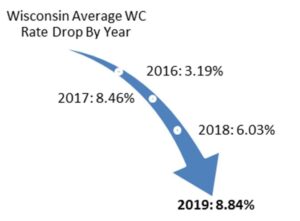How Bankruptcy Affects Life Insurance

Basics of Life Insurance
Life insurance is a financial safety net designed to protect those who depend on you financially. If you were to pass away unexpectedly, what financial challenges would your family face? Would they struggle to maintain their current lifestyle?
The primary purpose of life insurance is to replace lost income, helping your loved ones cover immediate and ongoing expenses like funeral costs, housing, and daily living. It’s a way to continue providing for them even when you’re not around.
There are two main types of life insurance to choose from: term and permanent.
Term Life Insurance
Term life insurance offers coverage for a specific time frame, known as the “term,” which usually spans between 10 and 40 years. If you pass away during this term, the beneficiaries named in your policy receive a payout, also known as the death benefit, from the insurance company.
Once the term expires, so does the coverage. However, you may have options to renew or convert the policy into a permanent one before the term ends. Term life insurance is generally more affordable than permanent life insurance because it provides straightforward, temporary coverage.
Permanent Life Insurance
In contrast, permanent life insurance offers coverage for your entire lifetime, as long as you continue to pay the premiums.
Many permanent policies come with a cash value component that grows over time. You can borrow against this cash value or even withdraw from it. Some types of permanent insurance also pay dividends to the policyholders.
Due to these added features, the premiums for permanent life insurance are significantly higher than those for term life insurance.
Whether you’re shopping for yourself or a loved one, use our guide to buying life insurance wisely for expert guidance.
Applying for Life Insurance After Declaring Bankruptcy
Life insurance companies have two key concerns when someone with a history of bankruptcy applies for a policy.
Moral Hazard Concerns: If you’ve recently experienced bankruptcy and your financial condition is still unstable, you may feel an urgent need to secure life insurance. While your intentions may be to protect your family or business financially, insurers often see this as a heightened risk. This concern is magnified by the potential for “moral hazard.” Insurance companies are cautious about the possibility that an individual may consider their death—such as through suicide—as a way to relieve financial burdens on their loved ones.
Premium Payment Abilities: Another concern for insurers is your ability to maintain regular premium payments given your shaky financial condition. Failing to make these payments can result in a policy lapse, meaning you lose the coverage and its benefits.
If you are currently going through bankruptcy, you may be denied coverage. That said, each situation is unique and evaluated individually. Some insurance companies may still consider giving you coverage, but this usually involves a thorough review of your finances and bankruptcy repayment details.
Factors that will help your application get approved:
You currently have a steady income.
You haven’t filed for bankruptcy multiple times.
Your bankruptcy petition has been approved by the court.
You are not undergoing treatment for psychological, mood, or anxiety disorders, nor do you have a history of such conditions.
Your family environment is stable.
You don’t have a history of alcohol or drug treatment.
For those who don’t meet these criteria, insurers will typically want to wait until two years after the bankruptcy has been discharged to offer coverage (five years for multiple bankruptcies).
The best-case scenario would be that your bankruptcy has already been discharged, meaning you’ve met all debt repayment obligations. However, not all insurers make this a prerequisite for considering you for a policy.
Life Insurance After a Discharged Bankruptcy
The more time that has passed since date of your bankruptcy discharge, the less concerning it is in the eyes of an underwriter. While your past bankruptcy will still be part of the overall financial evaluation, it becomes less significant as time goes on.
When applying for life insurance with a bankruptcy history, expect to provide additional financial documentation. This usually includes proof of your current income and a copy of your court-approved bankruptcy petition.
How Does Bankruptcy Impact Your Life Insurance Premiums?
A bankruptcy history can result in increased life insurance premiums, as insurers view you as a higher risk to cover.
To improve your odds of securing coverage at an affordable rate, especially within the first two years post-bankruptcy, it’s crucial to demonstrate financial stability. This could mean having a consistent income and holding stable assets like a home or car, which can justify the life insurance coverage you’re seeking.
Additionally, given that insurance companies can vary in how they evaluate bankruptcy histories, working with an experienced broker can be particularly advantageous. Brokers can shop around and compare policies from multiple insurers to find the best rates tailored to your specific circumstances.
Generally speaking, the longer the time since your bankruptcy was discharged, the less influence it will have on your premium rates.
Can Creditors Access My Life Insurance Policy?
Life insurance is an essential financial planning tool, and both federal and state laws in the U.S. recognize its importance. These laws often protect life insurance proceeds from creditors, but the level of protection can vary.
Things to know to protect your life insurance from creditors:
Name a Specific Beneficiary: To keep your life insurance proceeds out of reach from creditors, designate a specific individual as the beneficiary, rather than your estate. If the proceeds are paid to your estate, they become susceptible to claims by creditors.
Designate Contingent Beneficiaries: To further protect your policy, name one or more contingent beneficiaries. This ensures that if your primary beneficiary is unable or unwilling to accept the death benefit, the funds won’t default to your estate, where creditors can access them.
State Laws and Cash Value: If you have a permanent life insurance policy like whole or universal life, be aware that the cash value may be accessible by creditors, depending on your state’s laws. Some states offer more robust protections than others.
The Death Benefit Is Generally Safe: If you’ve named a specific individual as your beneficiary, the death benefit is usually protected from creditors. However, if your estate is the beneficiary, the death benefit becomes part of the probate process and is open to creditor claims.
Apply to a Broker for the Best Results
Not all life insurance companies underwrite in the same way. For example, while one company may consider offering you coverage while you’re still paying off the bankruptcy terms, another would opt to postpone your application until it’s fully discharged.
Applying to the right insurer makes all the difference. This is where Quotacy comes in. As an independent broker, we can shop your case to multiple life insurance companies. Consider us your life insurance matchmaker.
When you apply via our easy online application, if you happen to choose an insurer that we know isn’t lenient when it comes to bankruptcy, we’ll give you other options.
As a broker, we have a fiduciary duty to you, the client. We’re your advocate and will guide you through the life insurance buying process. Get a free, anonymous term life insurance quote today.




